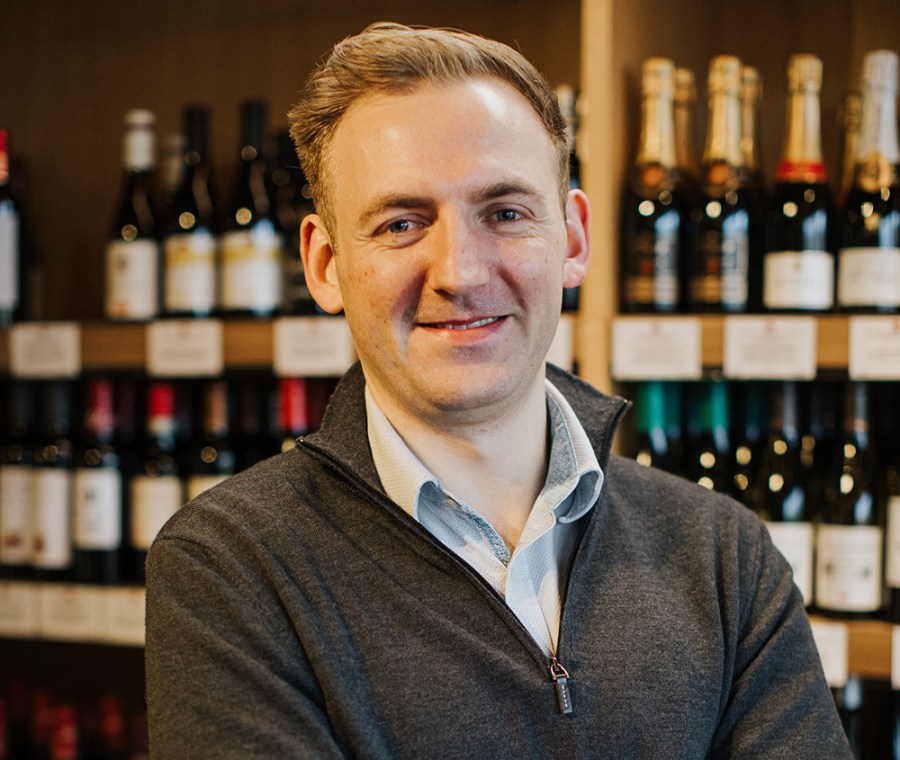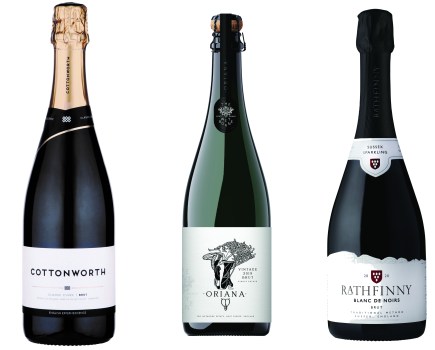Wine Society’s English wine buyer: Matthew Horsley
Do you stock/list English and/or Welsh Wines?
Yes. At the time of writing we’re selling wines from: Three Choirs, Chapel Down, Simpsons, Stopham, Nyetimber, Ridgeview, Langham, Breaky Bottom, Black Chalk, Blackbook, Dillions and The Grange. But often feature more.
What are you looking for when considering new wines to list?
At The Wine Society we have a quality first buying approach. If it doesn’t meet our rigorous quality requirement then we won’t stock it. No matter the price.
What do you expect a supplier/producer to supply to you in advance?
Samples and technical information on the wine are givens, but also a willingness to work together, ability to be flexible and creative and an understanding of our business model and our position in the market.
Do you have a minimum drop for a listing?
We do not have a minimum quantity but we do have circa 180k members to keep happy so quantities needed are relative to price. In terms of number of listings from a producer in order to be viable we have the ability to pick and choose the best wines (for us) from a producer. Again, if we don’t think it’s good enough we won’t take it.
Broadly, what do you think of English/Welsh wines?
Very exciting. The increase in quality over the last few years alone has been great to see. Traditional method sparkling wines continue to be our trump card, with a greater diversity of styles from across counties providing an extra level of excitement and complexity. But it’s the still wines, especially chardonnay and pinot noir, which have impressed me most recently, and rosé is a real ace in the hole which I don’t think we’re exploiting enough.
What are English and Welsh producers doing well?
Adapting. The last few years have thrown some serious challenges our way but producers have adapted fast in order to keep cashflow going. Investing in D2C, whether that’s cellar door or online, has been essential for many and in turn I believe it’s got people excited about local wines. I feel we’ve also done well to start early on sustainability and this is something we should continue to champion.
Conversely, what aren’t they doing well. What should they be considering/thinking/doing?
Pricing is still often unrealistic, especially for still wines. The £15 – £20 bracket is heavily congested with fine wines from around the world and is a difficult nut to crack. And whilst there are some seriously impressive still wines in the £20+ category I do find the use of oak on many heavy handed, like we’re trying to make Meursault in Chablis. Focus on freshness, drinkability and regionality.
What trends do you discern in wine sales and is there anything that English and Welsh viticulturists and vinifers should be addressing, going forward?
The obvious worry is climate change, especially off the back of an incredibly difficult 2021 vintage. Being ready and able to adapt will become even more essential going forward. We should keep ringing the sustainability bell, especially with current debates around bottle weights, deep-sea shipping and carbon footprint. In terms of product, English sparkling is no longer a curiosity, it’s a genuine option for consumers looking for high quality traditional method sparkling wines. Keep focusing on quality but be realistic with your target price-range. I believe rosé to be a real area of opportunity, especially in tougher vintages.
Is there anything you would like to say to English and Welsh winemakers and producers?
Stay positive, keep working together and continue to promote and produce wines which reflect our unique climate and terroir.
Your background
Joined The Wine Society back in 2013 and am now responsible for the buying of England, Greece and Hungary. I passed my Diploma back in 2017 and am currently in the second year of my Master of Wine studies.
How did you become a wine buyer?
Worked my way up through The Wine Society working in Member Services, Tastings and Events and have been in the Buying Department since 2017.
What style, type, country’s wine, do you personally enjoy?
I love wines of purity, freshness and that reflect a region’s unique terroir/winemaking history. Working with Greece has been a joy over the last few years and its rise to prominence has been great to see. I truly believe that xinomavro is a Fine Wine of the future. Outside my own regions I’m a lover of sherry, German Riesling, Rioja and cool-climate pinot and chardonnay.
A brief synopsis/history of your company
The Wine Society was founded in 1874 and is a co-operative owned by its membership, of which we currently have over 180,000 ‘active’ members. Our co-operative model means we don’t have to keep external shareholders happy, allowing us to re-invest profits into the company to help maintain lower prices and high service levels, whilst also having the freedom to scour the globe and buy wines based on quality. Our founding principle was to offer wines ‘hitherto unknown’ so it’s always exciting to be able to secure parcels of exciting wines for our membership.
What is the profile of your customers?
We have an incredibly broad membership from all walks of life, but all of whom are united by a love and passion of wine.
Which country, style of wine, are best sellers?
France still very much dominates our sales, followed by Italy and Spain, but smaller regions such as Greece and Austria are becoming more popular.




